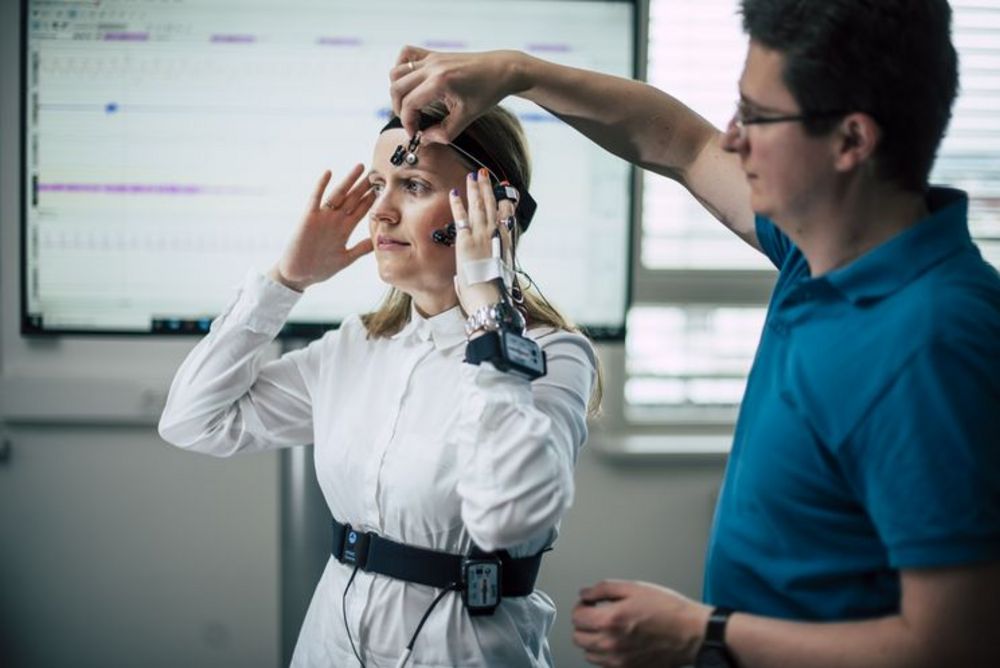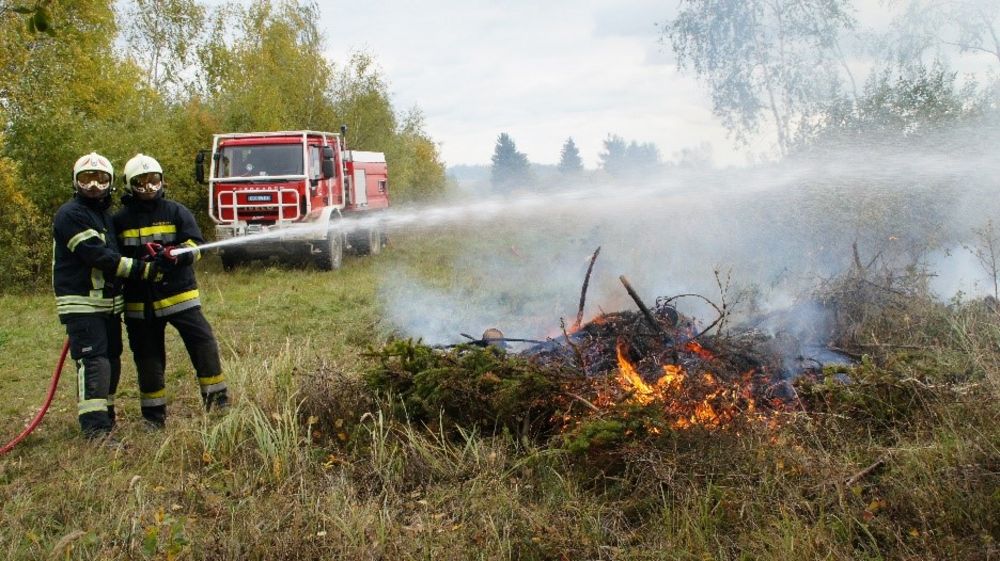- TECNALIA Research & Innovation (Spain)
- Aalborg Universitet (Denmark)
- Technische Universität Chemnitz (Germany)
- Universidad de León (Spain)
- Joanneum Research Forschungsgesellschaft (Austria)
- BioNanoNet Forschungsgesellschaft (Austria)
- Tecnalia Serbia (Serbia)
- Jobst Technologies (Germany)
- Metrohm DropSens (Spain)
- Smartex (Italy)
- Senetics Healthcare Group (Germany)
- Global Electronic Solutions (Serbia)
- TeleGroup (Germany)
- BiFlow Systems (Germany)
- Freiwillige Feuerwehr Gumpoldskirchen (Austria)
- IFR (Austria)
- Eucentre Foundation (Italy)
- VFP – Firefighters Pavia (Italy)
- Mountain Rescue Service of Serbia (Serbia)
- Association of Mountain Rescue Organizations of B&H (Bosnia & Herzegovina)
- Prostovoljno gasilsko društvo Postojna (Slovenia)
- Rijeka Fire Brigade (Croatia)

Digital biosensor analysis for real-time interaction in the Human Factors Lab with Michael Schneeberger and Zhanna Bambach (both Institute DIGITAL of JOANNEUM RESEARCH). Credit: JOANNEUM RESEARCH/ Bergmann
SIXTHSENSE is a multidisciplinary innovation and research activity with the overall goal of developing a wearable health monitoring system with closed loop tactile biofeedback, that enables first responders to assess their current stress status.
Predictive models based on multi-modal biosensor data will provide early warning of overload and dangerous situations, which can prevent the imminent loss of operational capability. As a team management tool, the system will enable real-time monitoring of all deployed emergency forces, thus contributing to increased team efficiency and operational safety.
Project duration: 05/2020 - 04/2023. More information can be found at sixthsenseproject.eu

Firefighter skill training of the fire brigade Gumpoldskirchen within the KIRAS research project 3F-MS in Allentsteig. Credit: JOANNEUM RESEARCH/ Almer
The contribution of the Institute DIGITAL builds upon the developments and experiences in the area of first responder decision support and human factors research. DIGITAL’s “Cognitive Sensing and Interaction Group” led by Lucas Paletta will first investigate stressful scenarios that decline situation awareness in critical decision making being supported by Prof. Wolfgang Kallus (Institut für Begleitforschung und Psychologisches Qualitätsmanagement). Data from wearable biosensors and mobile eye tracking will be collected in comprehensive field tests in order to estimate the status of human physical and cognitive readiness and provide AI-enabled recommendations for risk minimisation. The “Mobile Computing Group” led by Patrick Luley with its expertise on real-time data communication will focus on the development of innovative mobile decision support for the firefighters.
The Institute MATERIALS supports the development of the minimally invasive biosensors for first responders by means of computer-aided fluidic simulations. These finite element-based tools will be used to simulate the transport of respective body fluids in the microfluidic components of the biosensors and will give valuable input for design and layout optimizations of the sensors.
This project has received funding from the European Union's Horizon 2020 research and innovation programme under grant agreement No 883315.


